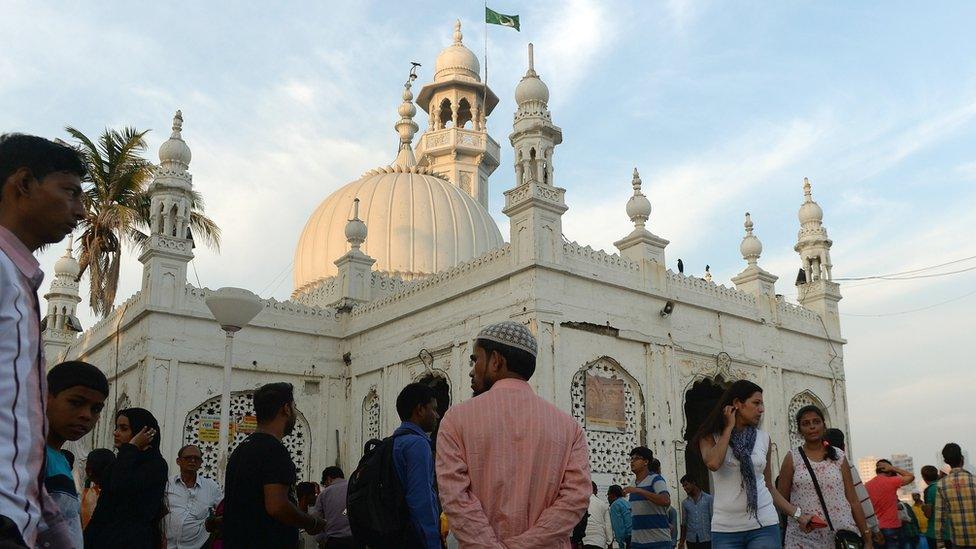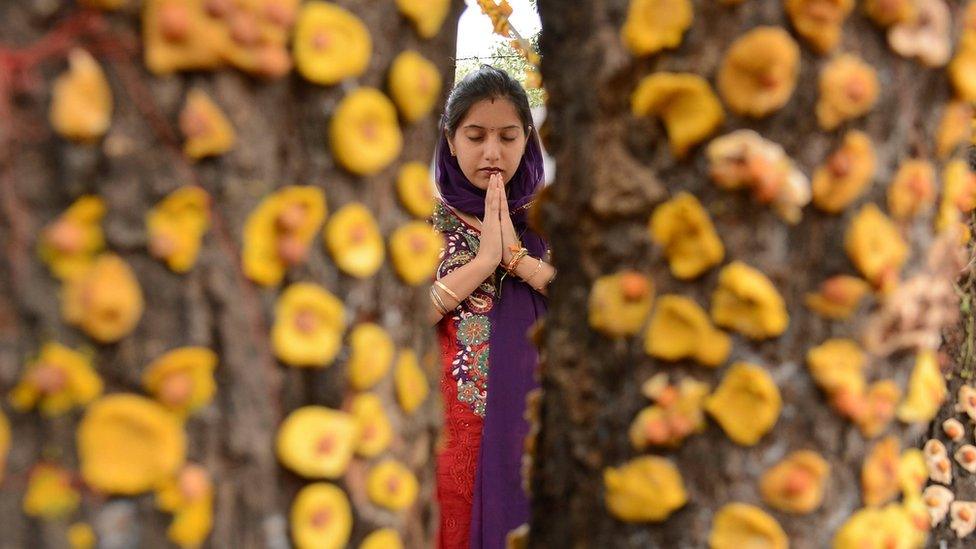India shrine: Women enter Mumbai's Haji Ali after ban ends
- Published
"We're feeling very good" - campaigners are happy they've been allowed back in the shrine
A group of women has entered the inner sanctum of Mumbai's Haji Ali mosque four years after they were barred by the trust that runs the Sufi shrine.
The high court in Mumbai said in August the ban "violated the constitution" and was discriminatory towards women.
The trust initially challenged the ruling in the Supreme Court but last month agreed to rescind the ban.
In recent months, India has seen a number of campaigns to allow women into religious shrines that bar their entry.
Indian women fight to enter temples
Although women are allowed into the compound and other parts of the Haji Ali mosque, the 2012 ban barred them from entering the inner sanctum, which houses the tomb of a Sufi saint.
The trust said it was a "sin" to allow women to touch the tombs of male saints.

Campaigners say the decision of male clergy to keep women out of religious places smacks of patriarchy in the name of religion
About 100 women had entered the shrine on Tuesday, Zakia Soman of the rights group Bharatiya Muslim Mahila Andolan (BMMA), told the BBC.
The BBMA had challenged the ban on women entering the 15th Century shrine in Mumbai's high court.
Women from all over India had petitioned the court to lift the ban and many of them were among the group that entered the mosque to offer prayers, Ms Soman said.
Campaigners say male clerics' decisions to keep women out of religious places represents the imposition of patriarchy in the name of religion.
- Published18 February 2016
